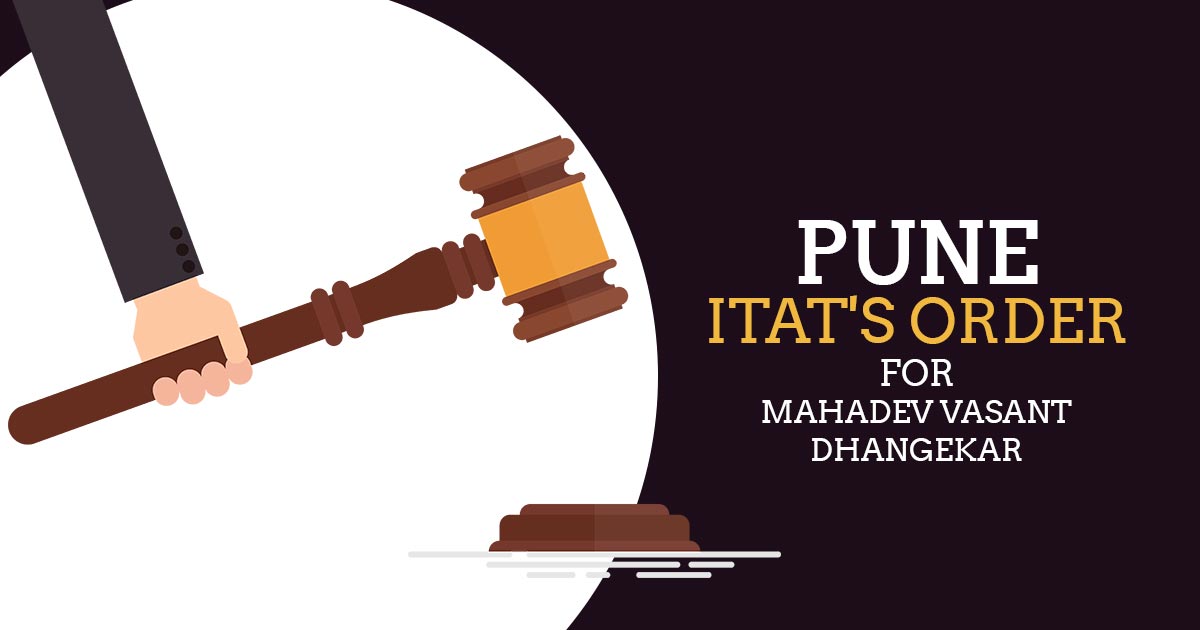
The payment was provided as an appreciation to the employee, according to the Pune Bench of the Income Tax Appellate Tribunal (ITAT). Therefore, it does not prove the relevancy under Section 17(3)(iii) of the Income Tax Act.
The bench, comprised of two judges, R.S. Syal (Vice President) and Partha Sarathi Chaudhary (Judicial Member), have noted that the department failed to present any documents or proofs. Information for the evidence to show that the employer had a legal obligation to pay the employee along with the payment they received from them.
The assessee is retired and did so voluntarily from Racold Thermo Pvt. Ltd. in Pune. Under the name M/s. Laxmi Enterprises, the appellant has started doing business in the industrial consumable supply sector.
The assessee was given Rs. 47,21,154 by the company as ex-gratia. He claimed Rs. 5,00,000 as VRS compensation/termination of service from this support money and considered the remaining Rs. 42,21,154 as a capital receipt.
When the matter was brought before the NFAC, it was discovered that the employer had taken the TDS from the payment, which confirmed the AO’s conclusions. According to Form No. 16 which was provided by the appellant, Rs. 42,21,154 was included in the recovery of payment.
The NFAC also pointed out that the letter provided by the assessee said that the payment received was made at the employer’s choice and that it had only been sent to the assessee after the case had been examined and analysed under Sections 153(2) and 143(1) had been delivered to the assessee.
The letter would have been delivered at the employee’s voluntary retirement and no TDS would have been deducted, if the employer had wished to consider the payment as a voluntary ex-gratia that was made with good intention or as a sign of appreciation by the employer.
If the payment was voluntary ex-gratia, it would not have been recorded on Form No. 16, which the employer provided to the assessee. Unlike Form No. 16, which was signed by the company’s Asst. General Manager, the letter was signed by the vice president of human resources. According to Section 17(3)(iii) of the Income Tax Act of 1961, the amount was made taxable.
A lump sum or any other payment received by an assessee from a person after the assessee’s employment with that person has ended, is also considered as a profit in place of salary under the Income Tax Act of 1961’s section 17(3)(iii), and the tax is levied accordingly.
The tribunal noted that the letter the employer had issued made it obvious that the assessee had made the payment voluntarily and freely and it was not compensation.
The tribunal put aside the NFAC’s directive and ordered the A.O. to remove the addition from the assessee’s hands.
| Case Title | Mahadev Vasant Dhangekar Vs.The Asstt. CIT, NFAC |
| Citation | ITA No. 472/PUN/2022: Assessment Year: 2018-19 |
| Date | 03.04.2023 |
| Appellant by | Shri Akshay Chhajed & Shri Rupesh Munawat |
| Respondent by | Shri Ramnath P. Murkunde |
| Pune ITAT | Read Order |









